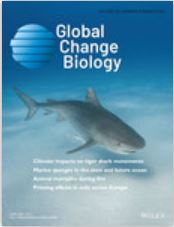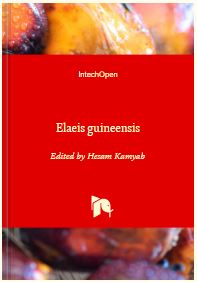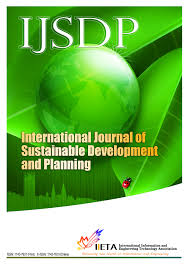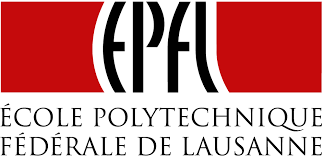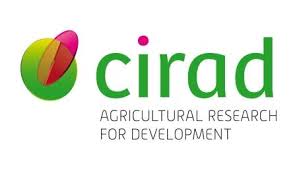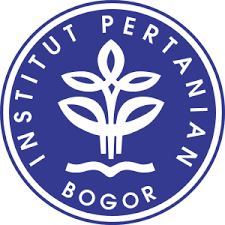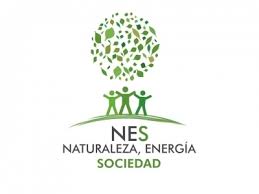
Most important results (2015-2021)
See also project outputs.
Cameroon
The CoPalCam game was developed with our partners in Cameroon through engagement activities with national and local actors. The game explores the interactions between smallholder producers and artisanal and industrial mills, and how factors like transportation and payment mechanisms affect the decisions by actors in the system.
The game enhanced dialogues for improved collaboration between palm oil smallholders and agro-industries, by exploring with stakeholders trajectories for sustainable palm oil development in Cameroon. The game was used with the interministerial panel for the control of the oil palm supply chain and then adopted in the MINADER (Ministry of Agriculture) as part of their outreach program for the development of cooperatives. The activities contributed to inform a decision by a group of smallholders around SOCAPALM Dibombari plantation to organize themselves into a cooperative. Cooperatives are explored as a viable option to optimize benefits of partnership with industry, which can lead to increase in productivity, disincentivise expansion, and contribute to increase revenue for the smallholders.
A special partnership was established with the media (television, radio and newspaper) and journalists. Media participated in several participatory workshops, and were thus instrumental in disseminating the results of the project to non-academic audiences. By participating in ComMod sessions, journalists were able to better understand the complexities of the oil palm production system and associated supply chain, and were thus able to report not only on research activities, but also on the complex realities of the oil palm sector. This ensured more informative news outputs.
More details can be found on the page: OPAL in Cameroon
Read also this article: On the road to sustainable palm oil production in Cameroon
Indonesia
Social sciences research:
Socio-economic research in Indonesia focused on agrarian and rural livelihood strategies, the role of oil palm sustainability standards, and the implications of current supply chain structures in rural regional economic development. Key findings include:
- A shift in rural livelihoods from previously diverse sources (agriculture, fisheries, trade), to increasing dependence on oil palm, resulting in reduced income diversity. The expansion of large-scale oil palm plantations (i.e. nucleus-plasma systems) encourages what we called “silent expansion” by smallholders in the landscapes leading to drastic ecological transformation.
- The adoption and implementation of ISPO and RSPO standards is challenged by lack of legality and legitimacy around oil palm plantation development, especially in forested regions, in the district of Kutai Kartanegara. This poses a significant problem for achieving sustainability goals.
- Current sustainable governance is ineffective in suppressing the expansion of oil palm plantations into forest areas. This is attributed to lack of compliance to sustainable standards among all actors along the supply chain, including smallholders, middlemen, cooperatives and companies.
- Analysis of sustainability systems (e.g. ISPO, RSPO) highlighted the challenges of setting aside areas for conservation within plantations (i.e. high-conservation value areas), and the integration of independent smallholders within sustainable supply chains.
We continue to inform ongoing policy development efforts by the national governments to strengthen criteria and indicators for ISPO system. We participated in dialogues on whether RSPO contributes to lessening deforestation rates and provided insights on how its members are complying with principles and criteria for sustainable palm oil amid their efforts to increase production from available land banks.
Transdisciplinary research:
In Indonesia, we developed three role-playing games called ComMoDO, LUCOPE and ComMod ISPO. These games were constructed from context-specific models that aim to understand social interactions among different stakeholders related to the expansion of oil palm plantations in the district of Kutai Kartanegara. The games also helped the research team leverage policy discussions at sub-national and national level on potential steps that would lead the oil palm sector to comply with ISPO sustainable standards. Discussions centred on how the existing regulations could be enforced, on identifying policy areas for improvement, and on how communication among authorities, particularly between the Ministry of Agriculture and provincial and district plantation agencies can be made more effective in achieving sustainability goals. Our results have informed policy processes on certification schemes, on limiting encroachment of smallholders on state forestland, and on increasing smallholder capacities to adopt sustainability practices.
More details can be found on the page: OPAL in Indonesia
Read also this article: Gaming Indonesia’s next move
Colombia
Biodiversity and ecological research:
Our research aimed to understand how vertebrate biodiversity and ecological processes respond to oil palm landscapes. Our findings in Colombia showed that there is (or can be) minimal overlap between suitable areas for oil palm production and threatened vertebrate distributions. There is room for oil palm to expand in Colombia (especially on former pasture lands) without incurring conservation risks for threatened vertebrates.
Transdisciplinary research:
NES Naturaleza co-developed role-playing game model (SuPalCo) to explore farmer practices in the Los Llanos region, including management of oil palm diseases, land use conversion and biodiversity conservation strategies. The model is built on agronomic models of palm oil production, disease dynamics, and water management. The game allowed the project to engage stakeholders from different background to discuss the impact of their management decisions. We included scenarios of RSPO certification, international price changes and climatic variability (i.e. El Niño years). The ComMod approach was successful in comparison to conventional trainings where stakeholders are passive recipients of knowledge as opposed to active producers of it.
A second ComMod model was constructed to support WWF Colombia and U. Javeriana in addressing water allocation conflicts in the Cravo Sur and Aracataca basins in Colombia. The resulting “La Cuenca” game allowed land users to understand the impact of water extraction decisions on water resource availability, and to explore collaborative scenarios for regional water governance. The model incorporated our ecohydrological modelling. Two Master theses at ETH Zurich used La Cuenca to explore participants’ knowledge and perceptions of water management conflicts in Colombia. The approach was effective in communicating landscape approach principles for solving water resource conflicts. The “La Cuenca” game was also used in a Master thesis at U. Javeriana to understand the water management strategies for agroindustrial production in Colombia’s Caribbean coast.
More details can be found on the page: OPAL in Colombia
Read also this article: Navigating conflicts in La Cuenca
Switzerland
Soil sciences:
Our research on soils sciences focused on understanding the long-term impacts of oil palm expansion on soil carbon and soil fertility in Colombia and Cameroon. We showed that pasture conversion to oil palm is neutral from an ecosystem C storage perspective. This finding suggests that this land use change has a potential to mitigate greenhouse gas emissions as compared to the dominant practice of cultivation on previously deforested land.
Eco-hydrological research:
Model simulations were used to assess the impact of forest conversion to oil palm on carbon/water fluxes. Model results revealed that in Southeast Asia young oil palm plantations decrease ecosystem evapotranspiration (ET), causing hotter and drier climatic conditions, while mature oil palm systems transpire more water than the forests they have replaced. Thus, the high land use efficiency of oil palm comes at the expense of water consumption in a trade of “carbon for water” that might jeopardize locally available water resources.
Outreach:
In Switzerland, we engaged with the scientific community and the general public. We participated in several forums through presentations, webinars, and panel discussions.
We communicated some of the realities relating to oil palm, including the sustainability challenges of alternatives to oil palm. Oil palm cultivation is associated with a very strong negative image, but this is often based on a simplified narrative of oil palm contexts. Our aim was not to present oil palm in a more positive light, but to promote more informed dialogues on oil palm, including consideration of the consequences of banning palm oil imports, or of switching to other vegetable oil crops. Associating oil palm with less negative environmental impacts tends to be perceived as an attempt to promote its development. We put special care to overcome this potential misunderstanding when publishing and presenting results.
We also engaged the primary and secondary schools sectors through presentations and more directly through playing the game of Cameroon.
More details can be found on the page: OPAL in Switzerland
Read also this article: OPAL Project: Shaping pathways toward sustainable palm oil production
Final Report
For a comprehensive report on the objectives, methods and results of the OPAL project, you can download the OPAL final scientific report that was submitted to the donor (SNF) in July 2021.
A list of project outputs can also be found in the P3 Research Database of the SNF website: OPAL 2015-2018 and OPAL 2018-2021
Peer-reviewed publications

